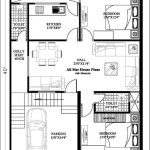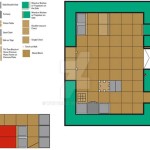Essential Aspects of Kerala Houses Plans
Kerala, renowned for its enchanting backwaters, picturesque beaches, and lush greenery, is also known for its distinctive architectural style. Kerala houses are not only aesthetically pleasing but also well-suited to the state's tropical climate and cultural traditions. When planning a Kerala house, there are several essential aspects to consider:
1. Traditional Kerala Architecture
Traditional Kerala houses, known as "Nalukettu," are built using natural materials such as laterite stones, wood, and clay tiles. These houses are characterized by their sloping roofs, wide verandas, and open courtyards. The courtyards serve as a central gathering space, providing natural ventilation and light to the interiors.
2. Climate Responsiveness
Kerala's humid and tropical climate influences the design of its houses. Sloping roofs facilitate rainwater drainage, while overhanging eaves provide shade from the sun. Wide verandas offer protection from rain and glare and create a comfortable outdoor living space.
3. Cultural Influences
Kerala's rich cultural heritage is reflected in the design of its houses. Intricate carvings, murals, and traditional motifs adorn the walls and ceilings. Religious and ritualistic considerations also play a role in the placement of shrines and prayer rooms within the house.
4. Use of Natural Materials
Natural materials, such as laterite stone, wood, and clay tiles, are commonly used in Kerala houses. These materials provide thermal insulation, regulating the temperature inside the house and reducing energy consumption. Laterite stones are a porous volcanic rock that absorbs heat during the day and releases it at night, creating a comfortable indoor environment.
5. Vaastu Shastra Compliance
Many Kerala houses follow the principles of Vaastu Shastra, an ancient Indian architectural system. Vaastu Shastra emphasizes the harmonious arrangement of spaces and elements within a building to promote positive energy and well-being. It guides the placement of rooms, windows, doors, and other structural features.
6. Modern Adaptations
While traditional Kerala architecture forms the foundation of house plans, modern adaptations have emerged to meet contemporary needs. These adaptations include the use of modern materials, such as glass and concrete, and the incorporation of amenities like air conditioning and swimming pools.
7. Sustainable Features
Increasingly, Kerala house plans incorporate sustainable features to reduce their environmental impact. Solar panels, rainwater harvesting systems, and energy-efficient appliances are becoming common. These features not only promote sustainability but also reduce utility costs.

30 Clever House Plans Ideas For A Comfortable Living Engineering Discoveries Drawing Kerala Design Floor

1000 Sq Ft House Plans 3 Bedroom Kerala Style Plan Ideas 6f0 Drawing Design Floor

3 Bedroom Kerala House Plans In 2d 3d

Free Kerala House Plan For Spacious 3 Bedroom Home Planners

Veedu Kerala Home Designs Free Plans

Kerala Style House Design East Facing Home Plan With Elevation And Designs Books

Kerala House Plan Drawing Dwg File Cadbull

Best Kerala House Designs Floor Design Plans And Ideas

House Plan At Rs 1 5 Square Feet In Pald Id 24189841830

Best Contemporary Inspired Kerala Home Design Plans Acha Homes








